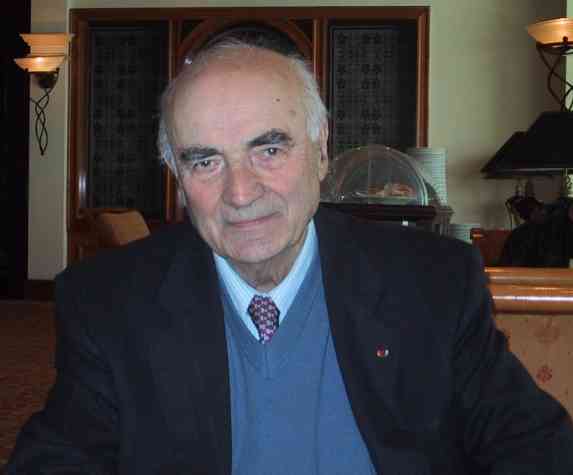|
Regional hub gets a kick start
By Fiona Mullen from
"Financial Mirror" |
||
|
Unique centre for energy, water and environment |
||
The long talked-about plans to turn Cyprus into a regional hub for hi-tech research and business got a kick-start on Friday, with the establishment of the Cyprus Research and Educational Foundation. "The strategic goal of the government of Cyprus is to turn Cyprus into a Regional Research and Technology Centre," said President Tassos Papadopoulos on Friday. Chaired by Papadopoulos, members of the board include distinguished names from both within Cyprus and all over the world, including former presidents George Vassiliou and Glafkos Clerides and highly respected names in the science and technology field, including former US Undersecretary for Energy Ernest Moniz and Professor Hubert Curien pictured above. Prof. Curien is a former minister of research and technology in France, a co-founder of the European Science Foundation (FES) and of Europea Academia. He is also chairman of numerous science and technology institutions, such as the European Space Agency (ESA) and the CERN--the world's largest particle physics laboratory. The Cyprus Research and Educational Foundation is charged with planning an institute that will focus research on energy, water and the environment and will be the first institute in the world that is exclusively dedicated to these issues. (Although the institute has initially been dubbed the Cyprus Institute, it is not to be confused with the Cyprus Institute, which forms part of the Harvard-Cyprus research initiative and is also likely to be included with the Foundation in a broad technology park.) In an interview with the Financial Mirror, Curien explained the Foundation's purpose. "Our goal is to build an institute for high-level research and education which could be a reference for this part of the world... A really international Institute but which would be interested in questions of particular importance for this region," he said. Maintaining water and energy supplies in an environmentally sustainable way is not just a problem for Cyprus; it is a problem faced by most of Cyprus' neighbours. "In every big research centre in the world we have laboratories dedicated to [water, energy and the environment] but not specifically designated as such. That will be a focal point that will be attractive, I think," he said. At a later stage, the Foundation plans to establish a second institute focusing on biology and health. Curien explained that while the institute will have an academic focus, its remit will also be practical. "The idea is to have an academic institution but with direct contact with the world of industry and economy." At a later stage, the institute would also take in students. Curien said that they were now ready with very detailed plans to start attracting financial support from banks and international institutions, including the EU. Future linked to new knowledge Asked to reply to sceptics who say that Cyprus has never had the infrastructure for high-level research in the past, and is therefore starting from zero, Curien said: "I quite understand that this question is put by the citizens of the country but in the modern world if you are not anchored if you do not have strong links with modernity and creativity, that is with science and technology, we will be aside." He added that no one can sit by any more and hope to benefit from science and technology taking place elsewhere. "The future of any country is linked with a real interest and a real participation in new knowledges and new initiatives in terms of technology." While Papadopoulos mentioned that he hoped the institute would attract Cypriot academics back home, Curien was also confident that high-level academics from elsewhere would be attracted. He noted that they had had no difficulty in persuading scientists to participate in this project and that visitors on Friday included scientists from the US, Europe, Israel, Jordan, Egypt and Japan. Curien is also impressed with Cyprus' commitment. "Our meeting with President Papadopoulos was very fruitful and very warm. He declared that he was in favour of the development of science and technology in this country. ... He said that he had a very real interest in the project and he will certainly participate." By Fiona Mullen, Financial Mirror, 2 February 2005 |
